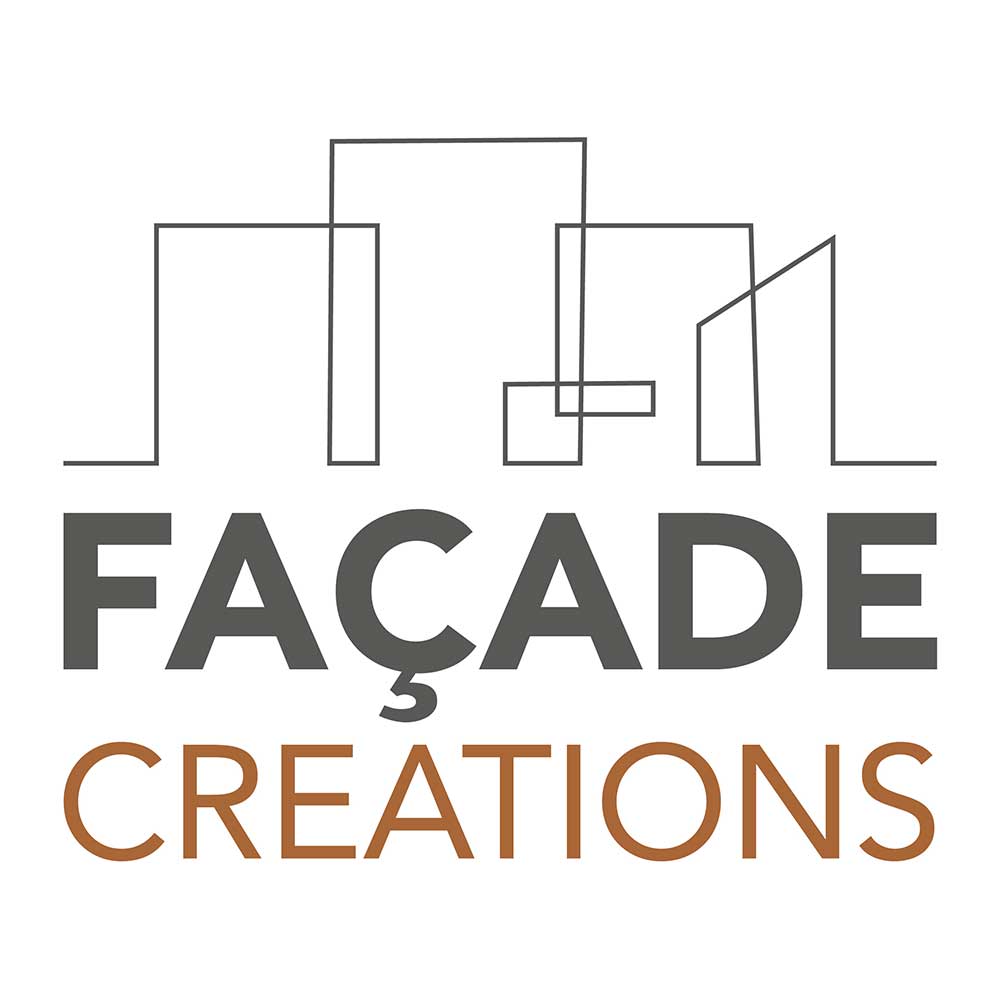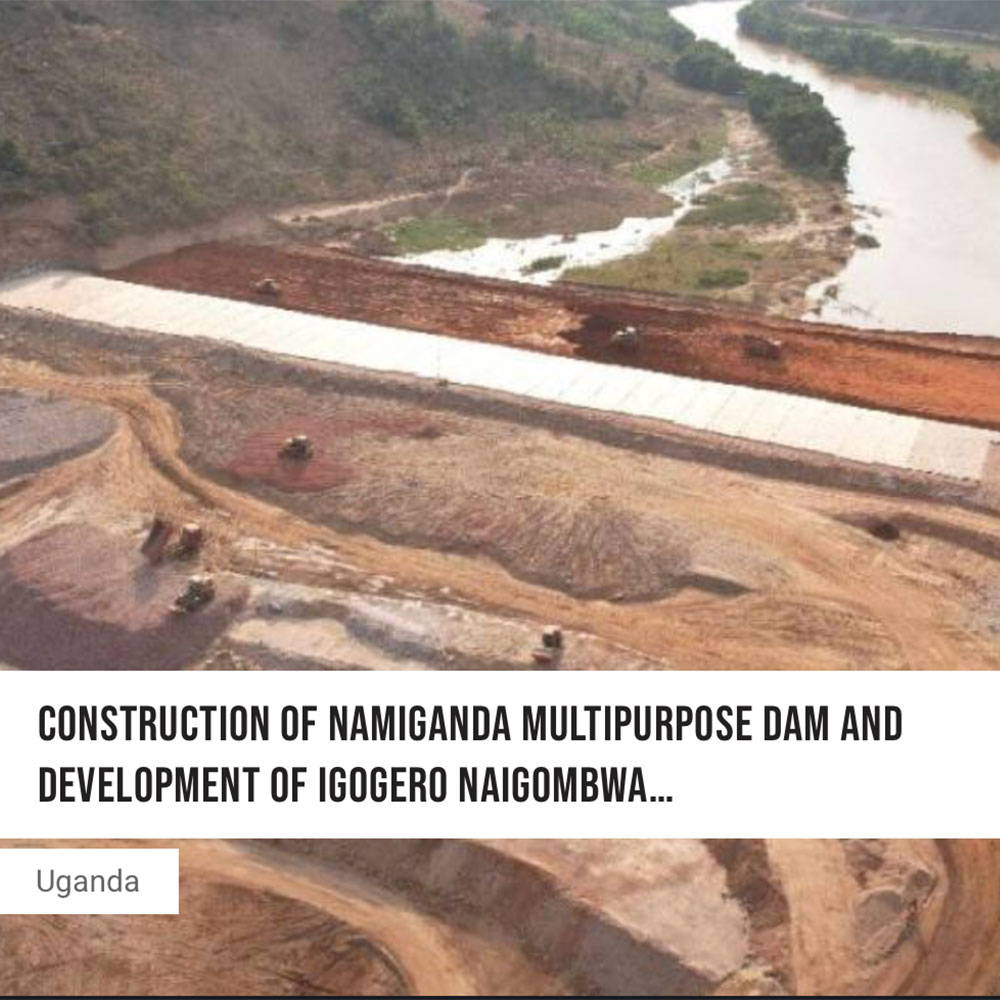Modern Slavery and Human Trafficking Policy
Façade Creations Ltd (the “Company”) is committed to preventing all forms of modern slavery and human trafficking in its operations and supply chains. We have a zero-tolerance approach to slavery and human trafficking, and we uphold the principles of the UK Modern Slavery Act 2015 and related guidance. This policy sets out our commitments, organisational responsibilities and procedures to ensure that modern slavery or human trafficking does not occur in any part of our business or in any part of our supply chains. It applies to all directors, officers, employees, contractors, suppliers and any other persons or organisations that provide services on our behalf.
This policy is aligned with UK law and Home Office statutory guidance, and reflects voluntary best practice to increase transparency and ethical conduct, even though the Company’s annual turnover is below the £36 million threshold that triggers the legal requirement to publish a slavery and trafficking statement. By adopting the spirit of the Modern Slavery Act, the Company demonstrates its commitment to ethical supply chain management and the protection of human rights in all jurisdictions where it operates.
Scope and Purpose
This policy covers all goods and services supplied to or by Façade Creations, including aluminium façade products and glass panels, and extends to all parts of our organisation and supply chain. It is a requirement of our contractual and ethical standards that all employees, subcontractors and suppliers (including overseas manufacturers and logistics providers) comply with this policy.
As a UK-based façade design, manufacturing and installation company, we recognise that certain aspects of our operations carry higher risk of modern slavery. In particular, the extraction and processing of raw materials (such as bauxite for aluminium or silica for glass), overseas manufacturing, and the use of subcontracted labour on construction sites can be at risk of forced labour, bonded labour, deceptive recruitment and other forms of exploitation. We also note that global reports indicate that forced labour risks remain persistent and deeply entrenched in certain aluminium and mineral supply chains. To address these risks, we apply robust due diligence procedures at every stage of procurement and contracting.
This policy is published on our website in accordance with transparency best practice. It is reviewed annually and approved by the Board of Directors, who take ultimate responsibility for its implementation and for ensuring adequate resources are provided to achieve its objectives.
Legal and Regulatory Framework
The Modern Slavery Act 2015 (the “Act”) is UK law that consolidates criminal offences relating to slavery, servitude, forced or compulsory labour, and human trafficking. In particular:
- Offences and Definitions: The Act defines slavery, servitude, forced labour and human trafficking in Sections 1–3, and makes these offences punishable by law. For example, Section 1 states that ‘slavery, servitude and forced or compulsory labour’ includes holding someone in a position of slavery or requiring them to perform labour or services under threats or coercion (Modern Slavery Act 2015, s.1). Section 2 defines human trafficking as arranging or facilitating the movement of people into slavery, servitude or forced labour. The Company is committed to preventing any conduct that could constitute a criminal offence under the Act.
- Transparency and Reporting: Under Section 54 of the Act, UK commercial organisations carrying on a business in the UK with a turnover of £36 million or more are legally required to publish an annual Modern Slavery Statement describing the steps taken to prevent modern slavery in their supply chains. Although Façade Creations Ltd’s turnover is currently below this threshold, we voluntarily adopt the principles of the Act and transparency best practice. The Company nevertheless compiles and publishes this policy to explain our approach to modern slavery, consistent with the spirit of Section 54. We intend to adopt the recommended content areas for transparency statements in our disclosures, including:
- Our organisational structure, business operations and supply chains.
- Our policies in relation to slavery and human trafficking.
- Our due diligence processes.
- The parts of our business and supply chains where there is a risk of modern slavery and the steps taken to assess and manage that risk.
- The effectiveness of our measures (including relevant Key Performance Indicators).
- Training on modern slavery and human trafficking.
- These areas are derived from Home Office statutory guidance on the Act, and Façade Creations is committed to addressing each of them comprehensively, even though we are not legally bound to publish a statement. We align our processes with Home Office and international standards (including the UN Guiding Principles on Business and Human Rights and the OECD Due Diligence Guidance for Responsible Business Conduct) to ensure consistency with recognised best practice.
- Other Legislation and Standards: In addition to the Modern Slavery Act, we comply with relevant UK and EU regulations prohibiting forced labour and trafficking, including the Immigration, Asylum and Nationality Act 2006 (illegal working provisions) and the Asylum and Immigration (Treatment of Claimants, etc.) Act 2004 (trafficking offences). We also consider international labour standards, such as the International Labour Organization (ILO) conventions on forced labour, child labour and worker freedom, and we support the UN Global Compact and other international initiatives against modern slavery.
Organisation and Supply Chain
Company Structure and Operations
Façade Creations Ltd is a privately held UK company specialising in the design, engineering, manufacture and installation of aluminium façade systems and glass curtain walls. We operate from our headquarters and manufacturing facility in the UK, serving clients primarily in the UK construction industry. Our workforce includes engineers, designers, factory operatives, and installation crews. We also engage subcontractors for specialist installation tasks, site-based labour and certain engineering works.
The Company’s operations involve several stages of production and delivery: procurement of raw materials, fabrication of aluminium frames and glass units, finishing and assembly, and installation at building sites. We source aluminium and glass from a network of suppliers, both domestic and international. Our supply chain is tiered, with primary suppliers providing fabricated parts or raw materials, and secondary suppliers (tier 2 and beyond) including raw material miners, smelters, and component manufacturers overseas.
Supply Chain Risks and Mitigation
We recognise that certain parts of our supply chain are higher risk for modern slavery, including:
- Raw Materials (Aluminium, Glass): The extraction and processing of bauxite (aluminium ore), alumina refining, aluminium smelting, and glass manufacturing can involve regions with poor labour protections. For example, industry reports note that forced labour and human rights abuses remain deeply entrenched in some aluminium and mineral supply chains. We will carefully evaluate any overseas supplier of aluminium ingots, extrusions, or glass panels, assessing the country of origin and any known risk factors.
- Manufacturing and Fabrication: Where fabrication or finishing is outsourced, especially internationally, we verify the labour practices of those facilities. We require our manufacturers to comply with our Code of Conduct and to provide evidence of ethical practices.
- Logistics and Transportation: Transportation and warehousing may involve subcontractors or migrant labour. We include anti-slavery clauses in our logistics contracts and ensure that carriers do not use exploitative labour.
- Site Labour and Subcontractors: The installation phase on construction sites typically involves subcontracted labour. We insist that all subcontractors performing installation or support services (e.g. cleaning, material handling) comply with this policy and relevant UK labour laws. We work only with licenced contractors and agencies and conduct checks on the labour providers they use.
By mapping our supply chain and identifying where labour is involved (e.g. glass cutting, aluminium finishing, cleaning, warehousing), we aim to understand where risks of forced labour or trafficking might occur. Where possible, we conduct site visits or independent audits of our key suppliers. We engage with external stakeholders (such as industry groups, NGOs, trade unions) to help identify risk areas and good practice. For example, we follow the Aluminium Stewardship Initiative’s standards which emphasize due diligence throughout the chain and require suppliers to avoid forced labour practices.
Subcontractor and Supplier Relationships
All agreements with subcontractors and suppliers include clauses explicitly prohibiting modern slavery and trafficking. We require partners to:
- Acknowledge this policy: Sign or incorporate an anti-slavery provision in their contract, confirming their commitment to upholding the principles of this policy.
- Comply with laws: Follow all applicable labour laws in their jurisdiction (for example, UK Employment Act 1996, National Minimum Wage Act 1998, foreign equivalents) and international standards on workers’
- Allow audits: Permit the Company (or its appointed auditors) to conduct on-site inspections and audits, with or without notice, to verify compliance.
- Cooperate with investigations: If allegations of abuse arise, cooperate fully with any internal investigation or law enforcement query.
Our procurement team vets suppliers before engagement, checking their business practices and any public information on labour issues. This vetting process includes: desktop risk screening (e.g. based on country risk ratings, Global Slavery Index, US TIP reports), questionnaire-based assessments, review of suppliers’ own modern slavery statements or policies, and references from other clients. Any supplier deemed high-risk must undergo enhanced due diligence, such as requesting independent third-party audits of labour practices or requiring corrective action plans. Suppliers must not engage subcontractors without our approval, and any approved subcontractors inherit the same obligations.
Policies and Procedures
Code of Conduct and Anti-Slavery Commitments
Façade Creations has a comprehensive Code of Conduct that incorporates anti-slavery principles. This Code, and supporting policies, are communicated to all staff and contractors. Key points include:
- Respect for human rights: We emphasise the absolute importance of treating all workers with respect and dignity. All personnel must refrain from any form of exploitation. We acknowledge that modern slavery risks may arise and emphasise the need for vigilance and immediate action if issues are detected.
- Zero tolerance for abuse: The Company strictly prohibits any acts of slavery, servitude, forced or compulsory labour, debt bondage, human trafficking, child labour or discrimination of any kind.
- Freedom of movement and association: Workers are free to end their employment and leave the premises after working hours without penalty. There are no unreasonable restrictions on movement. Workers have the right to join trade unions and bargain collectively, without retaliation. These rights are in line with ILO Core Conventions and our internal policies.
- No recruitment fees: We adhere to the ‘employer pays’ Under no circumstances do we require workers to pay recruitment or placement fees. All costs associated with recruitment, training or equipment are borne by the Company (or by our direct contractors, not by the workers). This helps prevent debt bondage and other abuses.
- Fair remuneration and working hours: Wages comply with national minimum wage laws or industry living wage standards, whichever is higher. Overtime is voluntary, compensated at the proper rate, and limited in accordance with labour laws. We strictly prohibit compulsory overtime.
- Prohibition of document confiscation: We do not retain or withhold any worker’s original identification documents (passports, national ID cards, etc) as a condition of employment. Workers’ personal documents remain their property at all times.
- Access to grievance and remedy: We maintain accessible grievance procedures. Workers have the right to report concerns about labour conditions (anonymously if desired) without fear of retaliation. If any worker is victimized, they will have access to appropriate remedies, including compensation, assistance, and restitution.
All these principles are embedded in our employee handbook and supplier code of conduct. We require evidence that any company in our supply chain has similarly stringent policies and communicates them to its own workforce. For example, the guidance suggests companies ensure that policies are “made available and communicated to workers” (including in local languages where relevant) and that workers can report violations. Consistent with this, we distribute key policies in the languages spoken by our workforce and encourage a culture of openness.
Responsible Purchasing and Procurement
Purchasing decisions can influence labour conditions. We promote responsible procurement by:
- Consideration of labour costs: We factor labour costs into our pricing and tender evaluations, avoiding unduly low bids that might have been made possible by exploiting workers. We seek to work with suppliers who pay living wages and provide safe working conditions.
- Anti-slavery clauses: Every purchase order and contract includes an anti-slavery provision that allows for termination of the contract if slavery practices are discovered. This creates clear accountability for suppliers.
- Training for buyers: Our procurement team is trained to identify red flags (e.g. very low bids, lack of transparency on labour) and to question suppliers about workforce management.
- Supplier engagement: We communicate our expectations on modern slavery to all suppliers. When onboarding new suppliers, we make clear that compliance with the Modern Slavery Act principles is a condition of doing business with us.
These measures ensure that our purchasing practices do not inadvertently incentivize exploitation. For example, guided by Home Office advice, we recognise the need for a responsible purchasing policy to prevent ‘cheaper slave labour’ from undermining honest businesses, and we commit to understanding how our procurement choices impact human rights.
Recruitment and Employment Practices
Within our own operations, we adhere to robust hiring practices to prevent forced labour. We undertake the following procedures:
- Right to Work Verification: We verify that all employees and on-site contractors have the legal right to work in the UK before commencing employment, in accordance with the Asylum and Immigration Act 1996.
- Employment contracts: All workers have written contracts in a language they understand, outlining their rights, wages, working hours, and health and safety provisions. This is in line with the guidance that workers should receive “comprehensive and accurate information regarding their rights and the conditions of their recruitment and employment in writing in a language that they understand”.
- No bonded or exploitative labour: We ensure that no employee or contractor is required to pay for their job (no deposit on wages or equipment), and that recruitment fees (if any) are not charged to workers.
- Diversity and inclusion: We do not discriminate in hiring or employment. We particularly pay attention to the vulnerability of certain groups (e.g. migrant workers, temporary workers, agency staff) and ensure they receive the same protections.
By maintaining high standards in our direct workforce, we set the tone for our supply chain. All employees receive a copy of this policy, and adherence to anti-slavery principles is part of our performance expectations.
Due Diligence and Risk Management
To ensure compliance and to identify potential issues early, Façade Creations employs a structured due diligence process:
Risk Assessment
We conduct regular modern slavery risk assessments covering our operations and supply chains. A risk assessment is a systematic analysis of the likelihood that any part of our activities or the activities of our suppliers involve exploitation. This includes:
- Sector and product risk: Assessing risk by material (e.g. aluminium raw materials may pose different risks than final fabricated components) and by country (e.g. production in a high-risk country). We use tools such as the Global Slavery Index and US Department of State Trafficking in Persons reports as inputs to our analysis.
- Business process risk: Identifying risk points such as subcontracted manufacturing, recruitment processes, and logistics. We examine our procurement and HR practices to ensure they do not unintentionally encourage exploitation.
- Vulnerable groups: Considering if certain workforces are at risk (e.g. migrant labour, temporary staff, or particular crafts that have been subject to abuse historically). We pay attention to signals like rapid turnover or high use of agency labour.
This risk assessment is updated at least annually, or whenever there is a significant change in our operations (e.g. new supplier, new country of operation). The results are reviewed by senior management, and we document the date of the assessment and the persons responsible.
Due Diligence Processes
Based on the risk assessment, we apply due diligence measures to mitigate identified risks. Our approach includes:
- Supplier Questionnaires and Screening: For critical suppliers, we issue detailed questionnaires covering their policies, worker protections, and any modern slavery incidents. These questionnaires may be aligned with standard templates (e.g. the Social Responsibility Alliance’s risk template).
- Audits and Inspections: We engage independent auditors to inspect high-risk suppliers, especially overseas manufacturers or subcontractors on site. Audits include document reviews and worker interviews. If auditable documents (such as payroll or time-sheets) are suspect, auditors may conduct unannounced visits for more accurate findings. Audits are conducted by trained professionals (who often speak the local language) to effectively identify signs of slavery.
- Site Visits and Worker Engagement: In addition to audits, our staff or partners periodically visit major suppliers and project sites to engage with workers and assess conditions. We encourage an environment where workers can speak freely about their conditions (sometimes through third parties or trade unions).
- Contractual Controls: We require suppliers to incorporate labour standards into their subcontracts. For instance, our contracts may mandate compliance with our Code of Conduct and allow us to terminate the contract if severe breaches are found. We also build in consequences for non-compliance, such as remediation plans or debarment from future work.
If any due diligence activity reveals actual or suspected slavery or trafficking, we respond immediately. Our response protocol includes stopping new orders from the suspect supplier, initiating an investigation, and requiring the supplier to take corrective action. We balance the need to remedy the situation (protecting victimized workers) with the need to avoid driving workers into worse conditions (e.g. we seek to work with the supplier on remedy rather than immediate disengagement if that would harm victims). Any suspension or termination of contracts is managed carefully to avoid further exploitation, and always with documentation of the steps taken.
Specific Measures for High-Risk Supply Chains
Given our focus on aluminium and glass products, we implement targeted measures:
- Material Traceability: We strive to know the origin of our aluminium and glass. Where available, we prefer suppliers with chain-of-custody certification or third-party audit credentials (e.g. those meeting Aluminium Stewardship Initiative or Responsible Sourcing standards).
- Supplier Engagement: For overseas factories, we establish long-term partnerships where possible. We may offer or require capacity-building (e.g. training in labour standards) and prioritize suppliers who invest in improving conditions. This approach increases our leverage in addressing problems.
- Partnering with Peers: We collaborate with industry groups and other contractors to share information on suppliers and risks. For example, joining procurement consortia or responsible sourcing initiatives gives us collective leverage to demand better labour practices.
- Risk Monitoring: We keep abreast of news and NGO reports about forced labour in relevant regions (for example, monitoring if new incidents are reported in major glass manufacturing hubs).
Internal Controls and Accountability
Roles and Responsibilities
Senior management at Façade Creations is responsible for the policy’s overall implementation. The Board of Directors provides oversight and receives annual reports on our anti-slavery efforts. A designated Modern Slavery Compliance Officer (typically within the Legal/Compliance team) manages day-to-day implementation and ensures that risk assessments, audits and training are carried out. Department heads (Procurement, Operations, HR) are responsible for enforcing the policy within their areas, including ensuring their teams complete training and that contracts include the necessary clauses.
All employees and contractors are expected to understand and comply with this policy. Managers are responsible for ensuring that any concerns raised are escalated promptly. We include compliance with this policy as part of performance reviews for relevant staff.
Training and Awareness
We provide regular training on modern slavery and human trafficking to all employees, with extra training for those in high-risk roles (such as procurement officers, project managers and HR staff). Training covers:
- The definitions and signs of modern slavery (e.g. restricted movement, withheld wages, abusive living conditions).
- Relevant laws and the Company’s policy requirements.
- How to report concerns or suspicions (including use of confidential channels described below).
- Our due diligence processes and how staff can help identify risks (e.g. by asking suppliers about their policies).
By educating staff and subcontractors, we ensure that everyone understands both the moral and legal importance of combating slavery, and knows how to act if something is discovered. We track completion of training as a Key Performance Indicator.
Audits and Monitoring
In addition to supplier audits described above, the Company conducts regular internal compliance reviews. These include:
- Internal Audits: Periodic checks of internal records (e.g. payroll, timesheets) and supplier documentation to ensure no unexplained deductions, deposit withholdings, or irregularities.
- Self-Assessments: We require certain key suppliers to complete self-assessment reports on labour standards annually. These are reviewed by the Modern Slavery Compliance Officer.
- Performance Metrics: We use both leading and lagging KPIs to measure progress. Examples of our KPIs include: the percentage of high-risk suppliers audited in the past year; the number of staff trained; the number of grievance reports received and resolved; and the results of worker interviews (e.g. percentage of workers who feel free to leave after their shift). These metrics are reported to senior management and used to drive improvement. Monitoring outcomes helps us know where goals have been met and where further action is needed.
Our monitoring approach aligns with Home Office guidance, which advises disclosing outcomes and ensuring data quality (for example, verifying that auditors are qualified to identify modern slavery). We also document case studies of remediation actions to demonstrate our effectiveness over time.
Confidential Reporting and Whistleblowing
We maintain a whistleblowing system and other confidential reporting channels for employees, contractors and suppliers to raise concerns. Reports can be made to the Compliance Officer, anonymously via email or letter, or through an external hotline. These channels are always available (24/7) and allow communication in multiple languages where needed. We strictly prohibit retaliation against anyone who reports in good faith.
All reports of suspected modern slavery are taken seriously and investigated swiftly. If a report is received, the Compliance Officer and relevant department heads conduct a prompt, confidential review. Depending on the severity, this may involve immediate suspension of the supplier or worker from the site, an independent audit, or referral to law enforcement. We document all steps taken and ensure that potential victims are protected and supported.
Escalation and Response
If modern slavery or trafficking is suspected or uncovered at any level of our business or supply chain, the Company will:
- Protect Victims: Take immediate steps to ensure the safety of any identified or suspected victim (for example, by providing safe accommodation or medical care if needed).
- Investigate: Conduct an internal investigation, including interviews and collection of evidence. We may suspend the offending party pending the outcome.
- Notify Authorities: Report the case to the appropriate authorities. For example, the Gangmasters and Labour Abuse Authority (GLAA) (0800 432 0804) should be contacted for UK-based labor exploitation cases, and the police (101) for criminal acts. If workers are affected in another country, we will report to relevant foreign agencies such as the International Organization for Migration.
- Remediate: Require any non-compliant supplier or contractor to implement a remediation plan. If the supplier refuses or is unable to remedy, we will consider terminating the contract, taking care to not worsen the victim’s situation.
- Disciplinary Action: Apply disciplinary measures, up to termination of employment or contract, against any Company employee found to have violated this policy.
The Company’s Senior Leadership Team reviews all incidents of modern slavery and the outcomes of investigations. Lessons learned are used to update our risk assessments and improve our controls.
Key Performance Indicators (KPIs)
We establish clear goals and metrics to drive continual improvement in our anti-slavery efforts. As guidance recommends, we set year-on-year goals for identifying, preventing and responding to modern slavery. For example, our goals may include increasing the proportion of suppliers audited or improving worker satisfaction with our grievance mechanism.
For each goal, we define outcome-focused KPIs. Illustrative KPIs include:
- Training Coverage: Percentage of staff and managers who have completed modern slavery awareness training.
- Audit Scope: Percentage of high-risk suppliers that have undergone due diligence audits or assessments in the past 12 months.
- Grievance Reports: Number of reported concerns or incidents of slavery-related issues (by way of example, aiming for a stable or increasing number in early years as awareness rises, followed by a reduction as issues are addressed).
- Policy Compliance: Number of supplier contracts updated with modern slavery clauses, or number of suppliers certified (if applicable).
- Remediation Metrics: Time taken to resolve verified slavery cases, and number of victims assisted.
Progress against KPIs is tracked regularly. We use both quantitative data (e.g. number of audits completed) and qualitative data (e.g. worker survey feedback) to assess impact. The data collection and reporting system assigns accountability for each KPI, and reports are provided to the Board. This aligns with the guidance that organisations should disclose who is responsible for monitoring and how progress is tracked.
Training and Awareness Program
All relevant staff are trained on this policy and on modern slavery risks. This includes employees in procurement, operations, HR, finance and site management. The training covers:
- The definitions of modern slavery and human trafficking (consistent with Section 1–2 of the Act).
- Our policy requirements and the legal obligations of the Modern Slavery Act.
- Red flags and indicators of exploitation.
- How to conduct due diligence and what to do if a potential issue arises.
- How to use the confidential reporting mechanisms.
Training is delivered at induction for new employees, and repeated annually for existing employees. We keep records of attendance and assess knowledge through quizzes or case studies. By embedding this training, we ensure that our workforce is empowered to help prevent slavery and to act if it is uncovered.
Review and Continuous Improvement
Façade Creations will monitor and review this policy regularly, at least annually, to ensure it remains effective and up-to-date with legal requirements. Any necessary amendments will be made and approved by the Board. We also update our practices in line with new guidance from the UK Government or best practice developments. Previous years’ performance is reviewed to help shape future targets, promoting continuous improvement.
We maintain documentation of all our modern slavery risk assessments, due diligence activities, audit reports and training records. Senior management receives periodic reports summarising these documents. By transparently recording and reviewing our actions, we aim to strengthen our controls over time.
Board Approval and Communication
This policy has been reviewed and approved by the Board of Façade Creations Ltd. The Board and senior management demonstrate leadership on this issue, as required by the Modern Slavery Act’s guidance that statements (and by extension policies) should have senior-level accountability. The Company’s leadership regularly communicates the importance of this policy to all stakeholders.
A copy of this policy will be made publicly available on the Company’s website, on a prominent page, to fulfill our voluntary transparency commitment. We will also share this policy with employees, contractors, suppliers and business partners, so they understand the standards we expect and the procedures we follow.
Responsibilities and Accountability
All members of staff and agents of Façade Creations have a responsibility to familiarize themselves with this policy and to report any concerns or suspicions of modern slavery immediately. Managers are specifically responsible for:
- Ensuring that all new and existing employees understand their obligations.
- Including modern slavery checks in supplier onboarding and contract renewal processes.
- Acting promptly on any reports or audit findings that may indicate slavery or trafficking.
The Chief Operating Officer (COO) and Company Secretary oversee the implementation of this policy and will report annually to the Board on performance against our modern slavery objectives and KPIs. Any breaches of this policy will result in disciplinary action, up to and including termination of contracts.
Legislation and References
This policy is informed by the following UK laws and guidance:
- Modern Slavery Act 2015 (c.30), particularly Section 54 on Transparency in Supply Chains (the legislative requirement to publish a statement).
- Home Office Statutory Guidance: Transparency in Supply Chains – A Practical Guide (2022), which provides detailed advice on compliance and best practices for modern slavery statements and policies.
- Modern Slavery Act 2015 – Statement Guidance (GOV.UK), which outlines recommended content areas such as organisational structure, policies, due diligence, risk assessment, KPIs and training.
- Other relevant standards, such as the UN Guiding Principles on Business and Human Rights and OECD Due Diligence Guidance, which we follow to strengthen our processes.
By integrating these legal requirements and guidelines into our practices, Façade Creations ensures that we meet our statutory obligations and go beyond them to ethically protect human rights.
Contact Us
If you have any questions or concerns about this policy, please contact us.
Our details are:
- Email: info@facadecreations.co.uk
- Postal Address: 124 City Road, London, EC1V 2NX, United Kingdom
- Telephone: +44 (0)116 289 3343
We will do our best to respond promptly and address your concerns.
Last updated: October 2025















